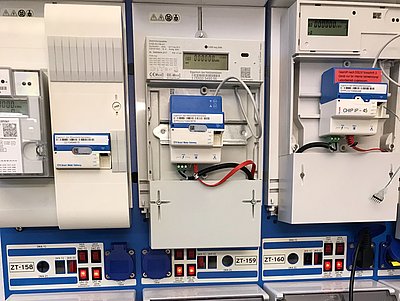The study shows that a crisis-resistant, uninterrupted telecommunications connection (blackout-proof) is essential for decentralized systems, such as PV systems, heat pumps, and charging points, to ensure system stability. Due to the growing share of these systems, their integration in critical grid situations is necessary. In addition to full blackout-proof telecommunications connectivity, blackout robustness of the smart metering systems and installations is sufficient to ensure an orderly restoration of grid functionality after power is restored.
For the implementation of critical grid communication, the 450 MHz radio network is recommended as the central solution, as it is cost-efficient and offers high reliability. The study highlights that without a robust telecommunications infrastructure, the stability of energy transition systems could be jeopardized. For non-critical data, less blackout-proof infrastructures, such as public mobile networks, should be used in parallel.



![[Translate to English:] Professor Bernd Sörries](/fileadmin/_processed_/c/7/csm_bd1799e9_klein_9e488ded6f.jpg)